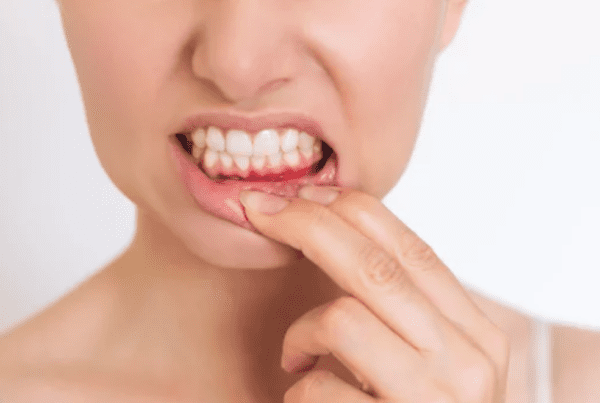 You may have a problem with your Temporomandibular Joint or TMJ as it is widely known. Many of us have chronic head and neck pain and don’t realize that it is actually attributed to their TMJ. The TMJ is a fully functioning and moving joint just like our ankles or knees. We have one on each side of our jaw and it connects our jaw to the skull. It can have short-term or long-term problems. Short-term problems can occur after opening really wide and hearing the dreaded pop, symptoms can include:
You may have a problem with your Temporomandibular Joint or TMJ as it is widely known. Many of us have chronic head and neck pain and don’t realize that it is actually attributed to their TMJ. The TMJ is a fully functioning and moving joint just like our ankles or knees. We have one on each side of our jaw and it connects our jaw to the skull. It can have short-term or long-term problems. Short-term problems can occur after opening really wide and hearing the dreaded pop, symptoms can include:
- Difficulty opening or closing
- Pain when chewing
- Muscle soreness
Short-term problems can last from a few days to a few weeks and can be managed by following a soft food diet, using warm moist heat on the affected side, using over the counter NSAID pain relievers and avoiding opening too widely. Usually the symptoms slowly resolve on their own and don’t need any dental intervention. It is always best to have the situation evaluated by a dental professional at the onset to make sure that it is in indeed a one-time short term situation.
Long term or chronic pain can be from either a short term injury that never healed or could be the result of grinding and clenching of the teeth or arthritis or jaw injury. Grinding and clenching are two distinct processes. Grinding is usually done at night when the subconscious either from stress or parafunction causes the individual to grind their teeth back and forth. Grinding causes considerable stress on the joint and the teeth. The constant motion of grinding never allows the joint to relax causing muscle soreness and pain.

TMJ DISORDERS
The wear on the teeth can ultimately lead to fractures and pain. Clenching is done during the day and night when the teeth are kept closed with sustained force. Clenching can cause muscle soreness and head and neck pain. The sustained force on the teeth can cause micro-fractures that eventually lead to broken teeth. These types of chronic situations need to be evaluated by a dental professional. Symptoms of a long term problem can include:
- Pain in or around the ear
- Headaches and neck aches
- Tenderness and soreness of the jaw muscles that is more prevalent in the morning or late afternoon
- Jaw pain when chewing, biting or yawning
- Difficulty opening and closing the mouth
- Clicking or popping noises when opening the moth
- Sensitive teeth when no other dental problems can be found
Treatment can be as simple as having a nightguard made. A nightguard is a hard clear plastic retainer that fits over the upper teeth to allow the grinder or clencher to transfer that force and stress to the plastic and not the teeth. In the process of using a nightguard the muscles are over time allowed to relax and the soreness and associated headaches begin to subside. Some associated joint arthritis can benefit from nightguard treatment as well. If you are experiencing any symptoms contact your dental professional to discuss treatment options.
For more information visit Ingram Hills Dental or call 210.435.4601.







Recent Comments